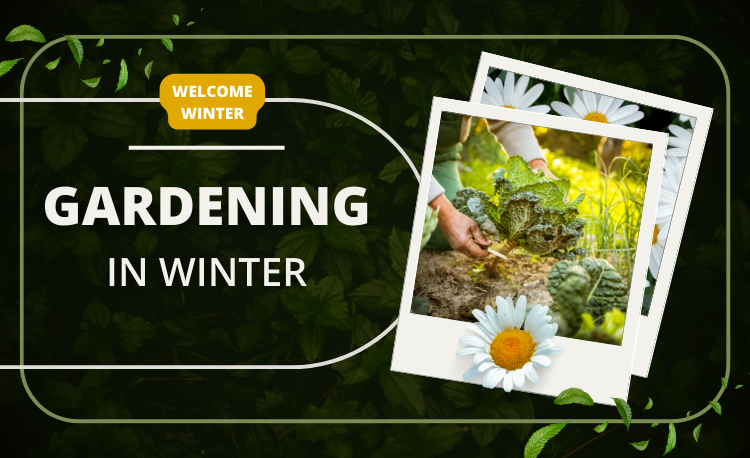GARDENING IN WINTER
Winter may not seem like the time to think about your garden. But take advantage of this break from the growing season to catch up on tasks that were put off during the rest of the year. Whether it’s protecting plants from severe cold, decorating the yard for the holidays, or planning for next season, there’s plenty to keep you busy while you dream of the growing season. To keep you on track, here’s winter gardening do’s and don’ts to keep you busy until growing season arrives.
Things you should do to your plants in winter
v Clean the plants: It means that you will need to remove the dead parts and the infected parts of the plants like stems, leaves, and flowers. If the infected parts of the plantare not removed, then the parts which are unnecessary may enhance the fungas or eggs of insects at the time of winters which may, in turn, infect the other parts of the plants too.
v Remove the weeds: Weeds are undesired and growing near to your plants surrounding them. You should remove the weeds because, if they start growing, they will compete for nutrients from the soil with your garden plants leading to unhealthy growth of the plant. The top soil has to be tilled for removing the weeds from its roots, otherwise it will grow again. The weeds can be used in the process of composting.
v Cover the soil with mulch : Cover the soil with some organic mulch like bark and shredded leaves. Always make sure that you are using the dry leaves which have fallen naturally like mulch, shed by shrubs and trees which will decompose readily. Mulching will keep the topsoil in warm conditions at the time of winter which will protest the roots from the damage caused by the frost.
v Avoid Over-watering: Over-watering at the time of winters will cause rooting to the roots which can lead to the death of the plants. While watering simply check the drainage of the planters on a regular basis in order to prevent the roots from standing in water.
Things you should not do to your plants in winter
v Do not prune your plants too much at the time of winters as they will not be able to develop new growth during winters. The plants will store their food in their stems and leaves which they will use for survival in the winter months, they will not be able to recover from too much pruning which will also lead them to death. You can cut off the infected parts or old parts of the plants without even causing any disturbance to the other parts of the plant.
v Activities such as root-pruning and repotting should be postponed till summers. This has to be done as the transplantation will disturb the plant roots and damage them making them not to regrow and also recover.
v There is no requirement for the fertilization of your plants at the time of the lean season of growth. As the metabolism of the plants will decrease at the time of winter, they will not need a large number of nutrients for survival. If you fertilize your plants too much, then it would be leading to problems such as wilting of leaves, brown tips, decreased flowering and it may also lead to the death of the plants.
v Avoid watering your plants with cold water, use very mild warm to normal temperature water. If the tap water you receive is too cold, then keep it in a bucket overnight or for a few hours in the daytime to bring it back to room temperature. This prevents root shock.Looking to add Seasonal Winter Flowering Plants! Check out our collection at : Winter Seasonal Flowering Plants

